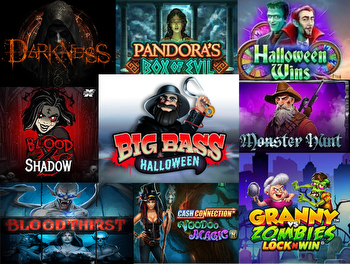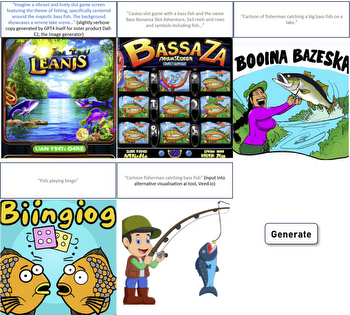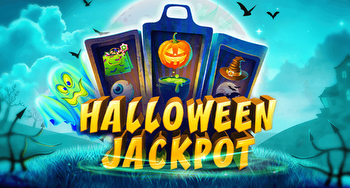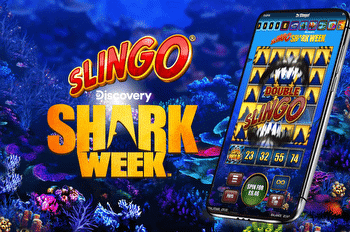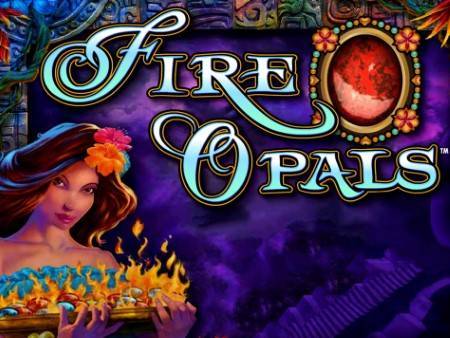Casino dashboard: June 2023
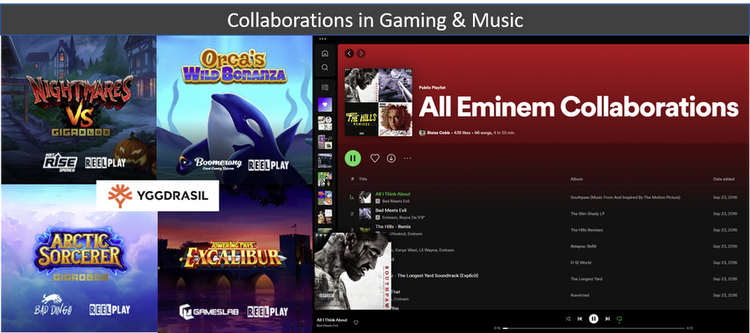
It’s good to see Fluffy Favourites back in the top 20. This game has spawned a total of 15 variations since 2016 including a scratch card, a slingo, a multiplayer bingo game and, coming soon, a ‘lucky tap’ instant. One of the latest supplier x supplier deals we note in this month’s dealmaker charts (see below) is that of Design Works Gaming (DWG) which is now licensing its lucky tap mechanic to Playtech/Eyecon. The first to receive the new treatment will be our Fluffy.
There are two winners in this relationship: Playtech/Eyecon get to extend the life of the Fluffy franchise via a new game type, whilst DWG makes a bit of cash from someone else’s product release. It’s worth noting, that DWG uses their social casino arm as a test bed for new RMG features or mechanics. With a fair wind, this lucky tap mechanic may score enough publicity, that other studios come calling.
These tie-ups are nothing new of course – Big Time Gaming’s Megaways mechanic was born in 2016 and licensed to other studios from 2018 onwards. A massive 430 Megaways titles were launched by 80 studios since. During the same period, just over 1,000 slots with over 2000 ways/lines were released: Megaways make up 40% of the total and the remaining ‘imitations’ are not only flattering but helping to grow the genre.
The game type Slingo goes back even further to 1995 and its mechanic has been licensed online for RMG since 2015. Parent company Gaming Realms, however, tends to build most Slingo games in-house, effectively ‘reverse-licensing’, if you will. They take the brand components from other studios to create the likes of Slingo Rainbow Riches or Slingo Starburst. Both parties then promote these hybrids. Their latest offering, Slingo Bingo, even extends their reach into a new vertical – the multiplayer bingo space – and performs well across the Entain network .
In the table games space, Galaxy Gaming has been licensing mechanics offline since 1996 and online just a few years later. You will find their variants such as Lucky Ladies, Perfect Pairs and 21+3 both offline, online RNG and now via live dealer too.
Outside of these three, however, there are very few collaboration specialists. ReelPlay has made some progress with Infinity Reels, whilst Yggdrasil, the studio and publisher, also sub-license a couple of mechanics to partner studios. Given the high-profile success stories of BTG, Slingo and Galaxy, why aren’t there more collaborations out there?
In the context of margin squeeze, driven by increased competition, the idea of giving away a share of your revenues, and to a competitor no less, can stick in the craw. There can also be apprehension that brand collateral is misused, or worse, that poorly executed variants will tarnish brands. All rational fears, perhaps, but here’s a counter-case for more collaboration in our industry…
First off, collaborative projects allow for faster and broader brand extensions. Faced with the splurge of content that is shortening product life cycles, anything that increases output or leverages existing brand (or mechanic) assets is a good thing. See our Casino Review 2022 for stats on the number of game launches or studios and games per operator as context.
But the benefits are far broader than the chance to squeeze more out of your assets. In the music industry, collaborations have grown by 30% since the 1990s. Around half of the top 20 chart tracks on Spotify (regardless of country) are collaborations. When Calvin Harris combines his creative formulas and processes with those of Rihanna or Ellie Goulding, the end product is likely to be of higher quality. Sure, they need to divvy up the revenues, but these in turn tend to be larger than those of each solo artist, not least as the megastars are able to cross-promote the track to their two fanbases.
It’s likely too that the buzz surrounding their collaboration will lead to cross-fertilisation of fans for their other tracks too. Many playlists that featured just one of the artists now include both. More than 60 collaborations with other artists over the decades are one reason for Eminem’s generation-busting relevance.
Trickier to value or articulate is the mutual learning of both performers. They get to compare approaches and processes to songwriting and its promotion. Fresh input can be vital for solo artists, whose creative juices are at risk of drying up.
So, “Fluffy Favourites Lucky Tap by Eyecon, featuring Design Works Gaming” is born – well it will be at least, in late summer. The agreement may include some form of contra-distribution for the project, which may even extend to other products. This could benefit both parties, not least as DWG has traction in the US, whilst Playtech are everywhere else. But even if it doesn’t, and you decide to go down this ‘collab route,’ maybe yours should…
It’s not just brand assets that are put to work either. You may have spent weeks on a fantastic mechanic but the first title featuring it just didn’t receive the airtime, to do it justice. Why not license this to a studio looking to extend its top brands? You may even attempt to cross-fertilise on both brands and mechanics. A two-way licensing deal between equal parties is a far easier sell than ‘give me a % royalty for my brand or mechanic…’ Add distribution and promotion to the mix and your collaborative projects may benefit from the combined aggregator and operator relationships of both parties.
Finally, writer’s cramp can hit us all. The opportunity to learn from our competitors is priceless and even the term ‘competitor’ can be slightly misleading: with over 50 studios per operator site, you could argue that most small or medium-sized studios rarely compete head-to-head for eyeballs.
“Excalibur Towering Pays by Games Lab, featuring ReelPlay and brought to you by Yggdrasil” might sound a bit of a mouthful but the length of the credits hints at the power of cooperation. If you’re interested in free introductions for such collaborative projects, get in touch .
As for our casino charts, it’s been pretty static this month, hence the digression into collaborations above. Big Buffalo Megaways (Skywind Group) popped up mid-month and just the one new title broke into the charts, Blazing Bison Gold Blitz (Fortune Factory Studios), presumably the first of a series of Gold Blitz extensions.
Top 20 games by distribution
On the deals front, Endorphina remains our biggest dealmaker over the last six months although CT Gaming, Gaming Corps and Stakelogic have all been building their distribution pipelines this month.
Biggest studio dealmakers
As predicted, Lucky/Reevo now joins Slotegrator and SoftSwiss at the top of the charts for the busiest aggregator.
Biggest aggregator dealmakers
Finally, the other prediction that seems to be holding up is that Aviator, or crash games more generally, are here to stay. Who knows, maybe there’s a crash variation of Fluffy on the drawing board somewhere. Or is the idea of a pink elephant, clinging onto a bunch of fairground balloons headed for the clouds too close to animal cruelty?
(1)Egamingmonitor also track active player numbers and pot size by multiplayer bingo room by hour across 20 operators.
(2)Egamingmonitor is happy to act as an intermediary for any studios looking for collaborative partnerships, so get in touch and we’ll get you partnered up! This matchmaking is a completely free service.
* Please note these are live charts which update every month so please ensure the month of May 2023 is selected in the drop-downs to match the analysis
**The interactive games chart at the top excludes live games and table games. Game rankings are determined by the number of game appearances on the casino homepages of more than 2,300 casino sites. To access many other charts including game rankings, live and table games, positions on subpages or to filter game performance by game theme, game feature, market or operator, please get in touch with our partner, egamingmonitor.com. Egamingmonitor covers 48,000 games, 1,500 suppliers and 2,300+ operators. ***Data on deals by month was collected from April 2020 onwards and the rolling chart reflects current dealmaking performance, i.e. how many deals were signed over the last 6 months. Note that only deals either a) on company websites or b) in the gaming press or c) reported to us by studios and








